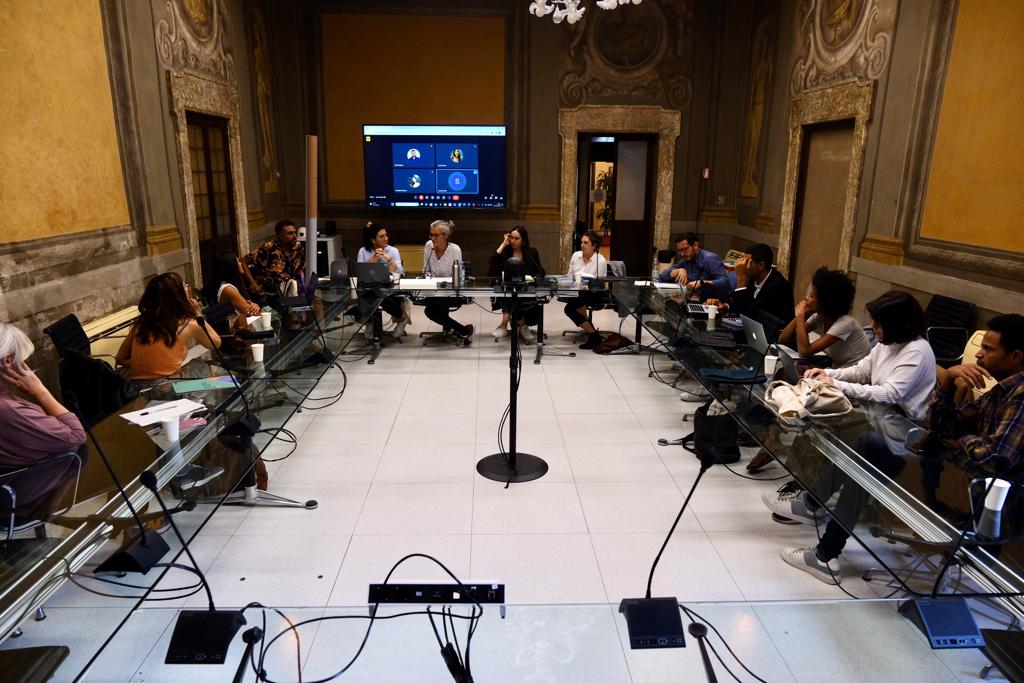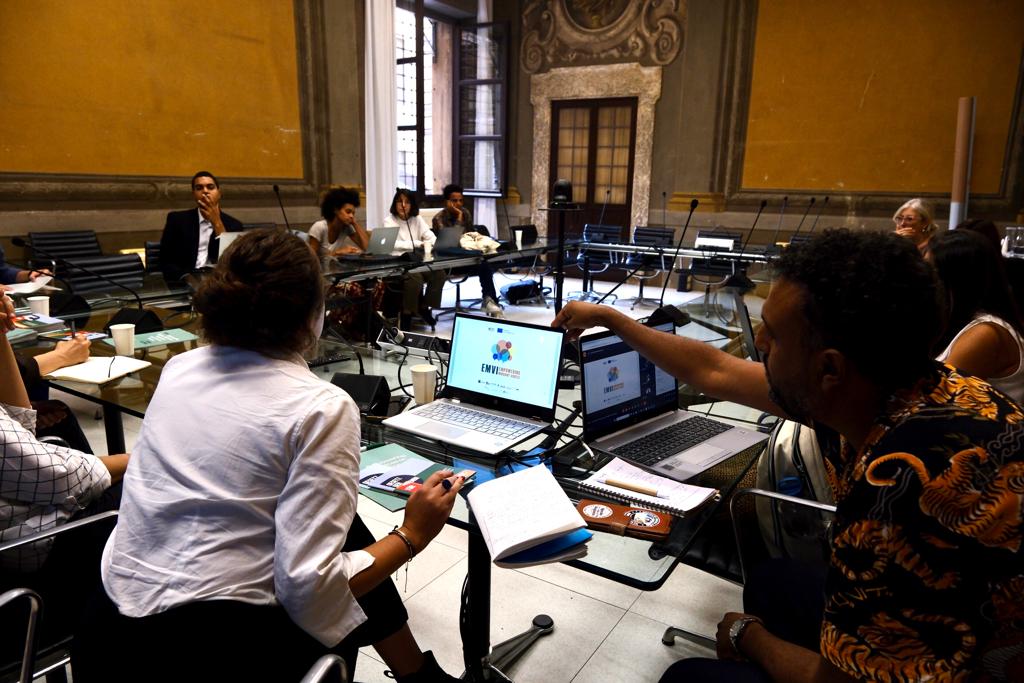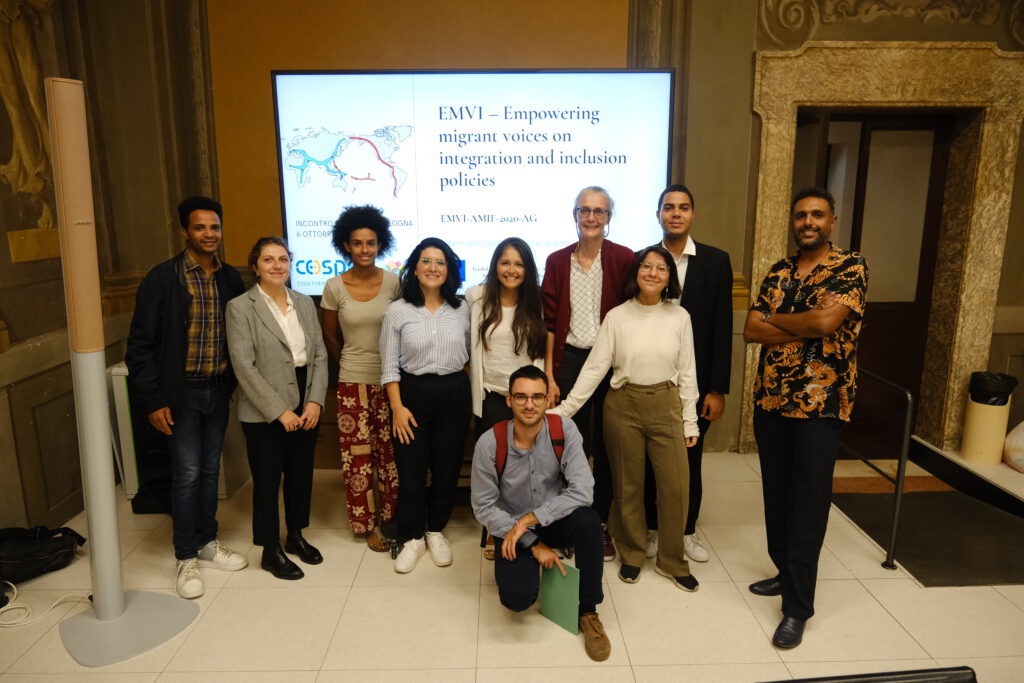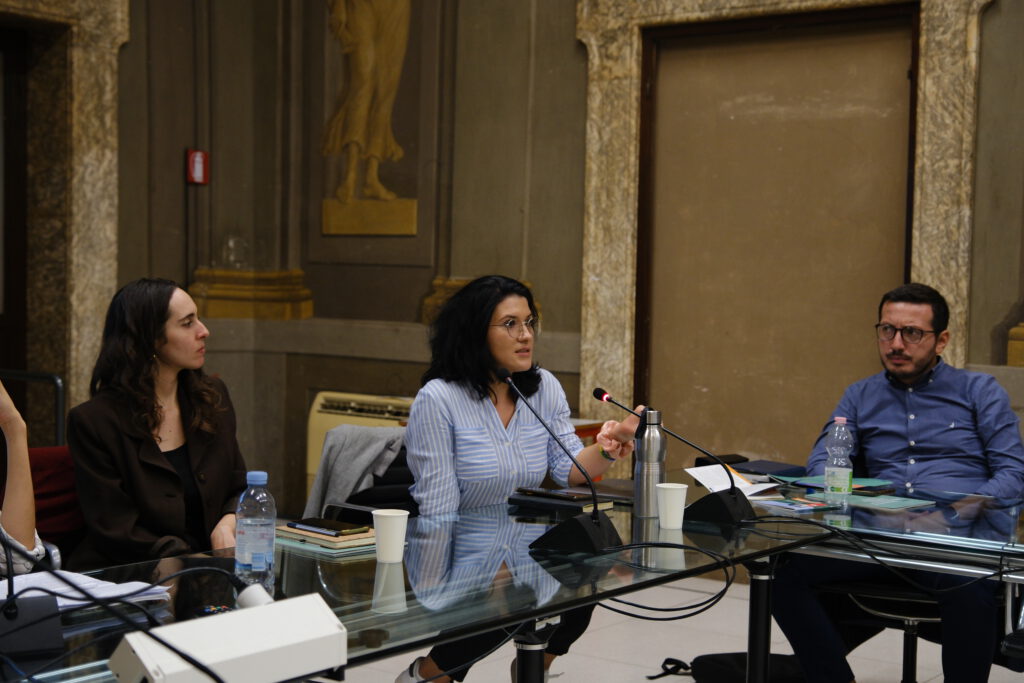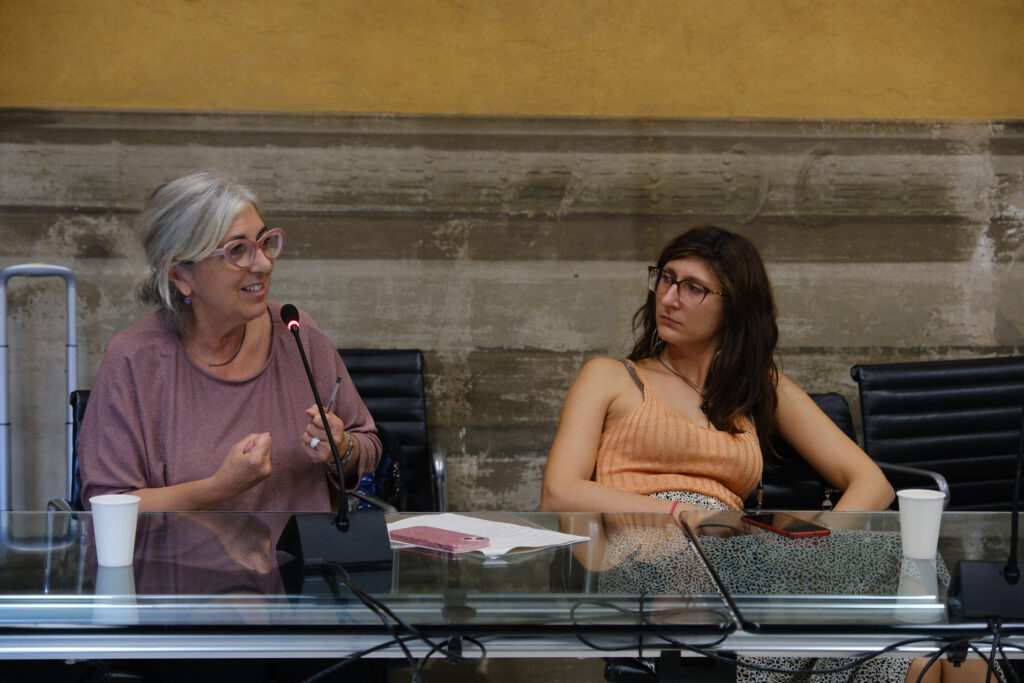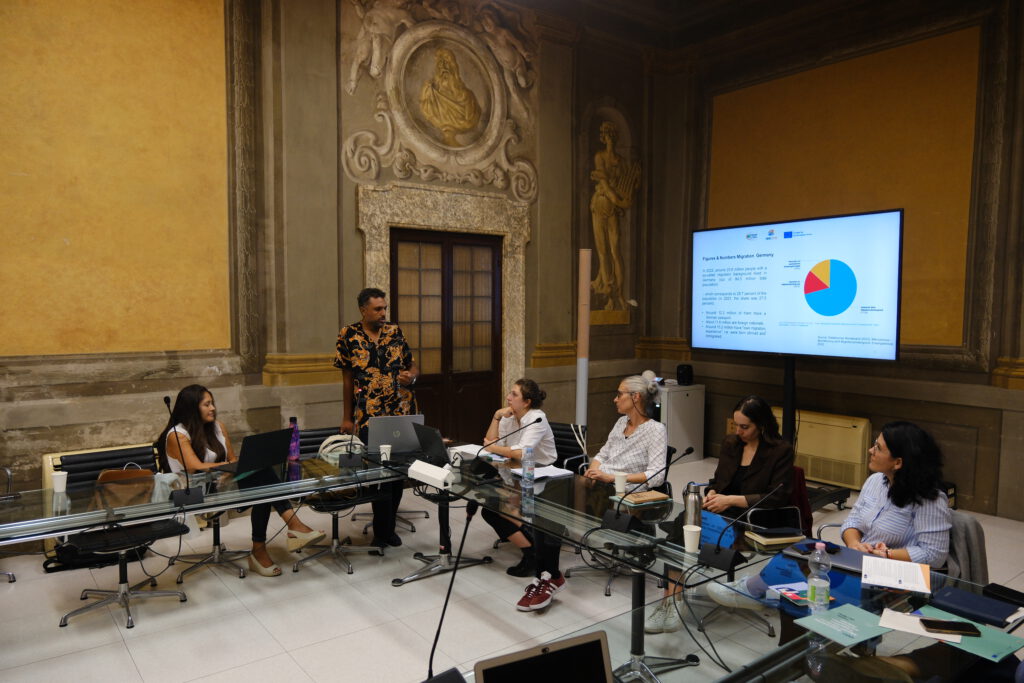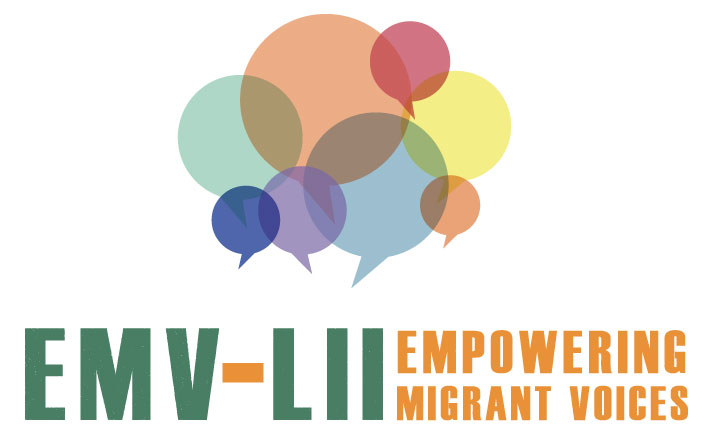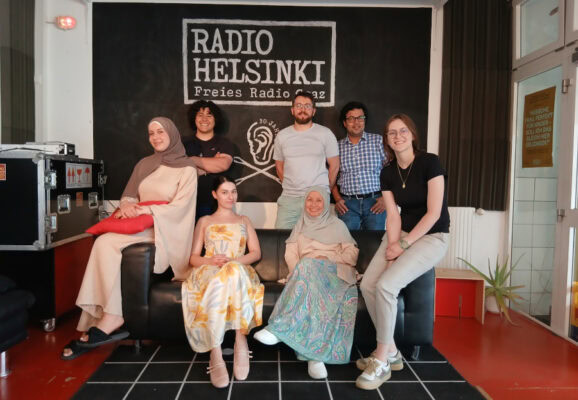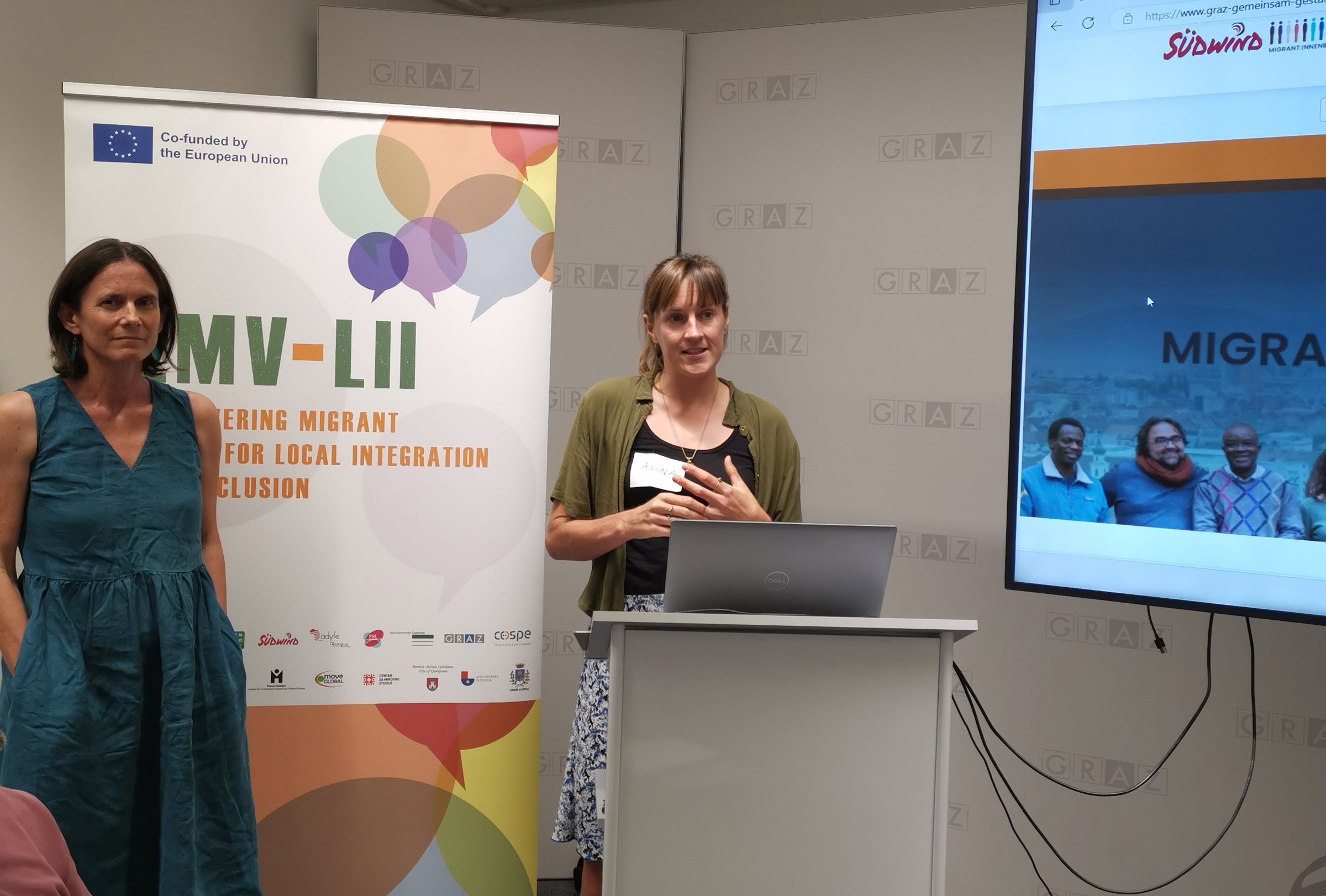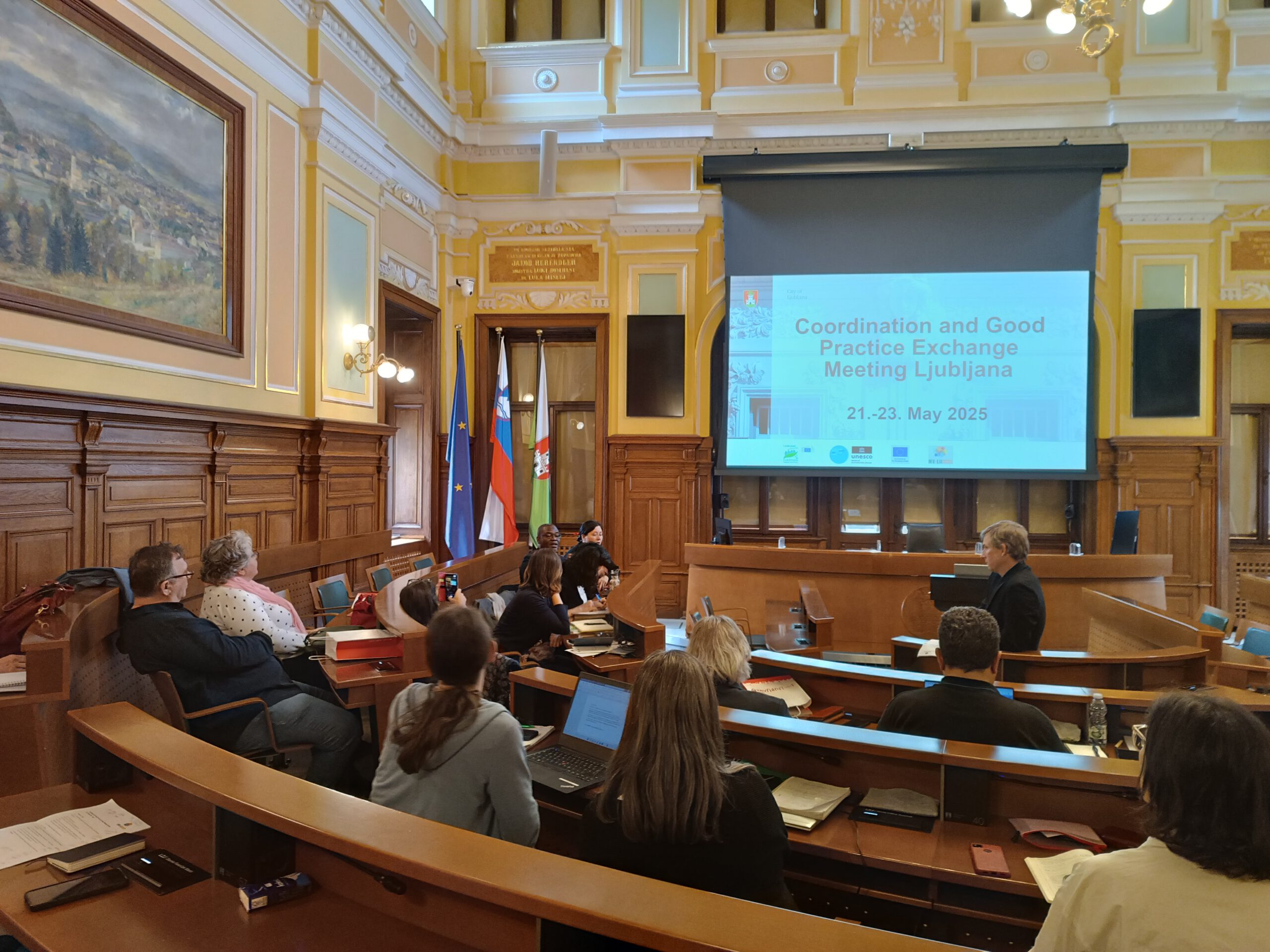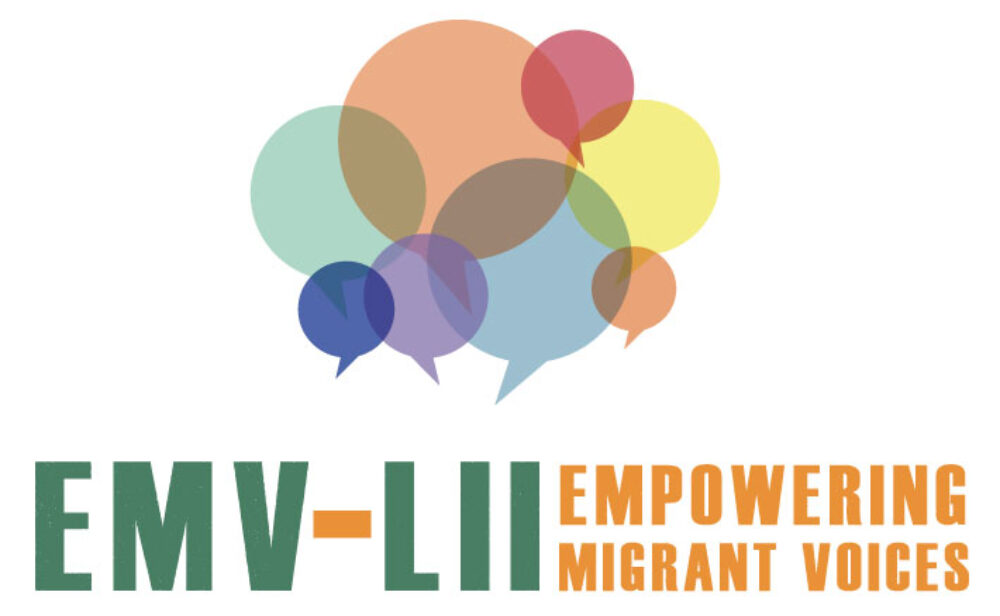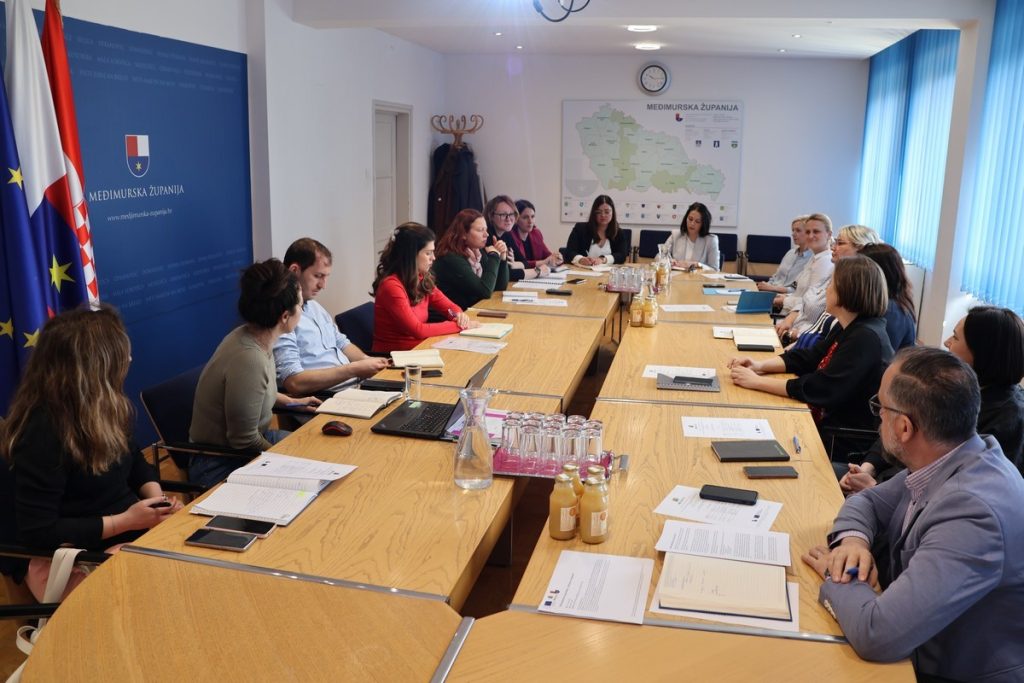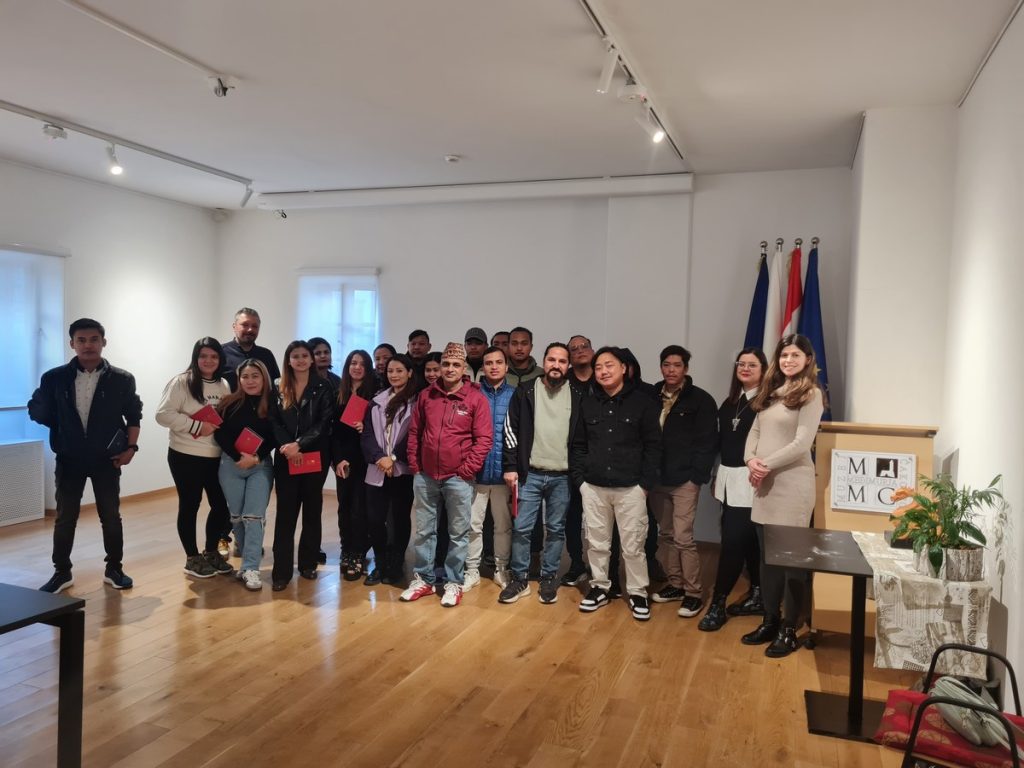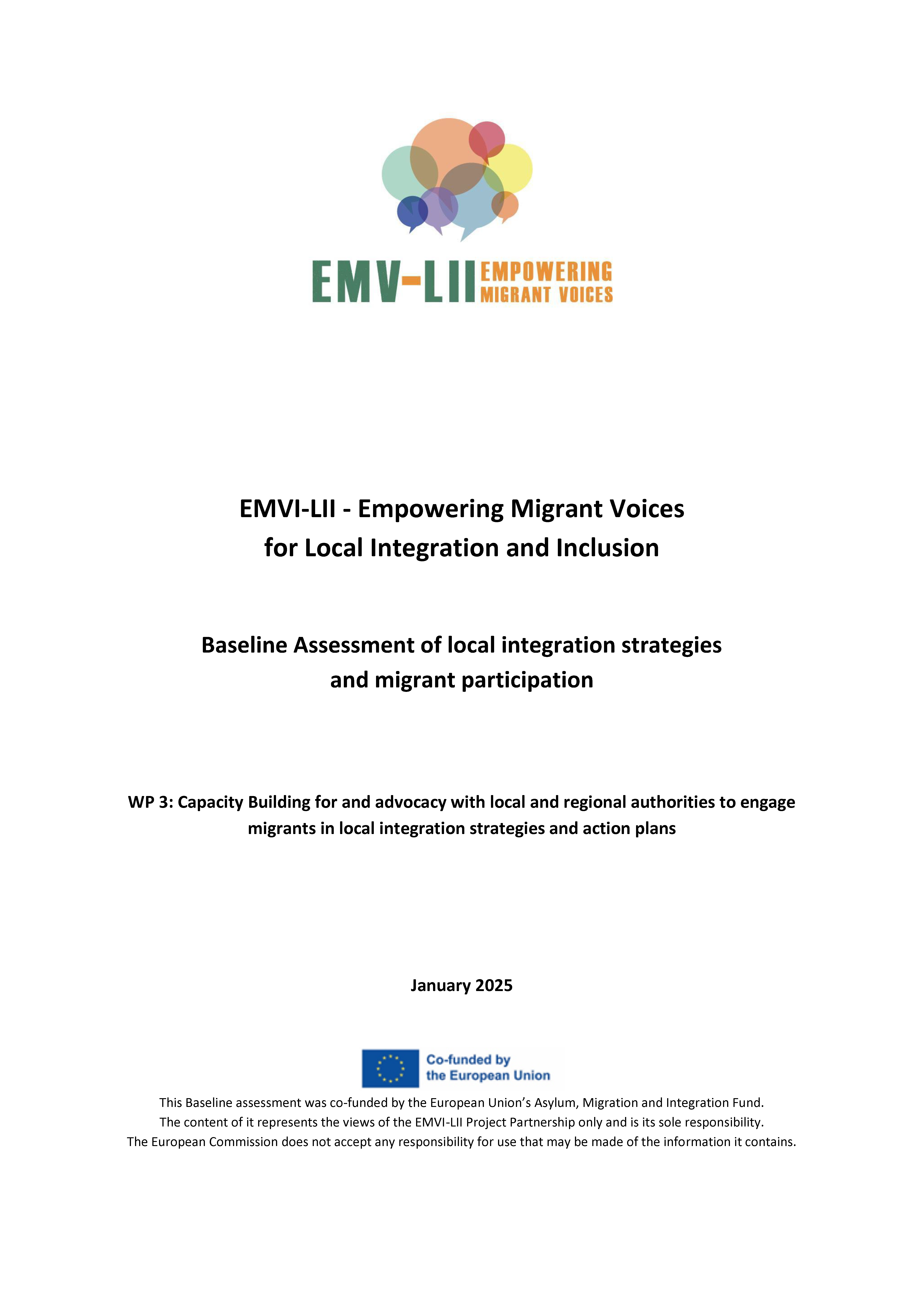Participation in political and cultural life is a fundamental human right, recognised in many international human rights treaties, starting with the Universal Declaration of Human Rights, which guarantees the right to participate in government and free elections, the right to participate in the cultural life of the community, the right to peaceful assembly in assemblies and associations, and the right to join trade unions. Participation is a fundamental principle of human rights and is also a condition for democratic citizenship to be effectively guaranteed to all.
For years, the Municipality of Bologna has been committed to the active involvement of associations and individual residents and grants honorary citizenship to children of immigrants, pending an organic national law on citizenship.
Thanks to the EMVI project we were able to talk about the experiences in Berlin and Ljubljana. Sonila Tafili, project coordinator for COSPE in Italy, together with Daryna Sterina from moveGlobal and Katja Utrosa from KD Gmanja, met Rita Monticelli, Councillor in charge of Human Rights and Interreligious and Intercultural Dialogue of the Municipality of Bologna and Siid Negash councilor of Bologna who officially hosted the delegation in the offices of Palazzo Accorsio.
A fruitful exchange of experiences from the ‘Open Door Act’ of the federal state of Berlin, a law renamed ‘Binding Measures to Promote Diversity in Administration and Economy as well as Political Participation of People with a Migrant Background’, developed with the significant participation of the Berliner Gesetz zur Förderung der Partizipation in der Migrationsgesellschaft (PartMigG), the Foreigners’ Advisory Council, to the right to vote in local elections for long-term residents in Slovenia.
A few years ago, the Municipality of Bologna instituted the figure of the Diversity Manager, professionals who support the Office for Rights and Plural Cities in the development of good management of all dimensions of diversity, with the aim of improving the accessibility of services and making the composition of staff representative of the entire resident population, thus increasing the presence of underrepresented minorities. This team also accompanies the administration in the project to expand the Spad, the anti-discrimination desk.
“The European exchange, facilitated by COSPE, was valuable and stimulating. Creating the conditions for real participation of all citizens is a central objective for the administration of Bologna and therefore it is necessary to work together on the one hand to remove obstacles – at work, housing, and others – that make participation a privilege compared to those who instead have those conditions, and on the other hand to develop new ideas and platforms to make all citizens more and more involved in the choices of our territory,’ said Councillor Rita Monticelli at the end of the meeting.
